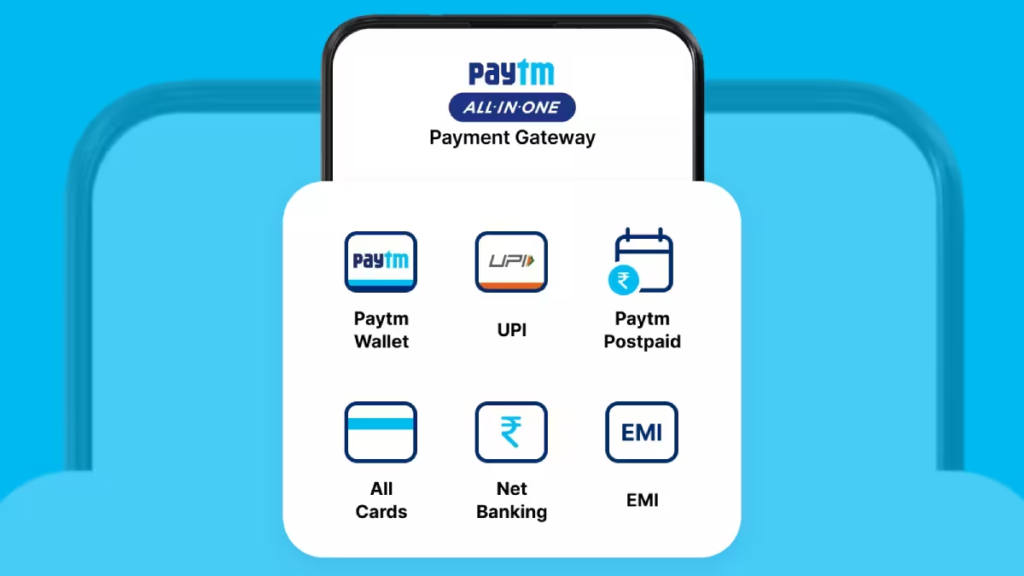AUTHOR :ADINA XAVIER
DATE : 23/10/2023
In the fast-paced digital age, payment gateways[1] have revolutionized the way businesses[2] and consumers[3] conduct transactions[4]. One of the prominent players in this sphere is Paytm, a popular digital payment[5] platform in India. In this article, we will delve into the realm of payment gateway charges, with a specific focus on Paytm.
What Are Payment Gateway Charges?
Payment gateway charges are fees imposed by payment service providers for facilitating online transactions. These charges can vary based on several factors, including the type of transaction, the volume of transactions, also the payment gateway provider. They are a crucial aspect of any online business, and understanding them is essential for both businesses and consumers.
Understanding Paytm as a Payment Gateway
Paytm is not only known for its mobile wallet but also for providing payment gateway services to countless businesses. As a payment gateway, Paytm ensures that transactions are seamless, secure, and efficient. However, like all payment gateways[1] it imposes certain charges for its services.

Types of Payment Gateway Charges
- Transaction Fees: Transaction fees are charges incurred for every successful transaction processed through the payment gateway. They can be a fixed percentage of the transaction amount or a flat fee.
- Setup Fees: Setup fees are one-time charges associated with the initial setup of the payment gateway. Businesses may need to pay these fees to start accepting online payments.
- Annual Maintenance Charges: These charges are recurring also cover the maintenance and upkeep of the payment gateway.
- Currency Conversion Charges: If your business deals with international customers, currency conversion charges may apply when converting foreign currency into the local currency.
How Payment Gateway Charges Affect Businesses
The impact of payment gateway charges on businesses is significant. High charges can eat into profits, especially for small and medium-sized enterprises (SMEs). Businesses need to account for these charges when setting prices and consider strategies to minimize their impact.
Strategies to Reduce Payment Gateway Charges
- Negotiating Fees: Some payment gateway providers, including Paytm, may be open to negotiation, especially for high-volume businesses. It’s worth exploring the possibility of reduced charges through negotiation.
- Opting for Customized Plans: Many payment gateway providers offer customized pricing plans tailored to a business’s specific needs. This can be a cost-effective solution.
- Choosing the Right Payment Gateway: Researching and selecting the right payment gateway[2] for your business needs can help reduce charges.
Importance of Transparent Pricing
Transparent pricing is crucial in the world of payment gateway charges. Hidden fees can create distrust among customers and negatively impact a business’s reputation. It’s essential for businesses to clearly communicate the charges associated with online transactions.

Case Study: Impact of Payment Gateway Charges on E-commerce Store
To understand the real-world impact of payment gateway charges, let’s consider an e-commerce[3] store. High transaction fees can reduce the store’s profit margins. By choosing a payment gateway with lower fees, the store can increase its profitability.
The Role of Security in Payment Gateway Charges
Payment gateway providers invest in robust security measures to protect transactions and sensitive customer data. While security adds to the operational costs, it’s a necessary expense.
Tips for Consumers Using Paytm
As a consumer using Paytm for transactions[4], it’s essential to be aware of any charges associated with specific services. Always check the terms and conditions to understand the fees and charges before making payments.
Future Trends in Payment Gateway Charges
The payment gateway industry is dynamic, and pricing models can change. In the future, we can expect to see more innovative pricing structures that cater to the evolving needs of businesses and consumers.
Conclusion
Payment gateway charges are an integral part of the digital commerce landscape. Understanding these charges, especially when using platforms like Paytm, is vital for businesses and consumers alike. By choosing the right payment gateway and adopting cost-effective strategies, businesses can ensure that payment gateway charges don’t become a burden on their operations.

FAQs
- Are payment gateway charges the same for all businesses? Payment gateway charges can vary depending on the provider and the nature of the business. High-volume businesses may have opportunities to negotiate lower charges.
- Can consumers avoid payment gateway charges when using Paytm? Consumers can’t entirely avoid payment gateway charges, but they can be mindful of the charges associated with specific services and payment methods.
- Is Paytm the only payment gateway in India with charges? No, there are several payment gateway providers in India, and most of them have associated charges. It’s essential to compare their fee structures before choosing one.
- Do payment gateway charges include taxes? Payment gateway charges typically exclude taxes. Businesses need to account for taxes separately.
- How can businesses stay updated on changes in payment gateway charges? Businesses should regularly review their payment gateway agreements and stay informed about any updates or changes in charges.





